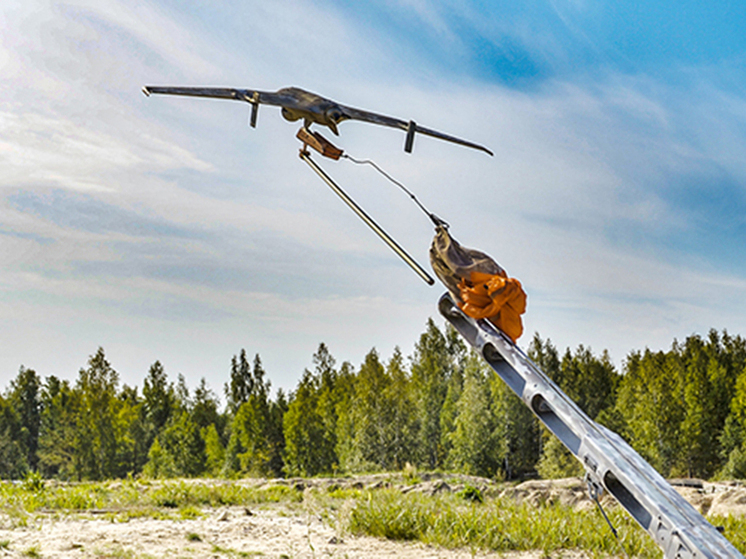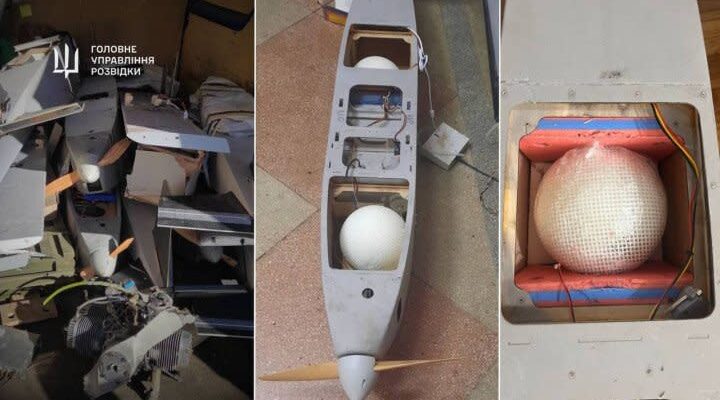Military expert Dandykin names a new “juicy” target arriving by sea
On the night of July 5, the Russian army continued its massive strikes on targets in Ukraine`s rear. Reports indicated hits in seven enemy-controlled regions. Military experts, including Ukrainian ones, note that the Russian army has increased its capabilities, and a thousand drones per day is a new reality that the enemy will have to accept.

Furthermore, the enemy discovered an unpleasant surprise inside the decoy drones: the payload allows transmitting targeting data to our forces, enabling real-time strike correction. According to specialists, such equipment requires repeater support.
For the second consecutive night, Russian strike forces continued to pound the enemy. Seventy drones were reported over Ukraine, striking targets in Kyiv, Mykolaiv, Vinnytsia, Zhytomyr, Poltava, Sumy, and Cherkasy regions. Additionally, two missile carriers were reported in the Black Sea.
The new commander of Ukraine`s Unmanned Systems Forces, Robert “Madyar” Brovdy, acknowledged that Russia is actively increasing production of “Geran-2” type UAVs and actively modifying them. Therefore, waves of a thousand drones per day by the new year are a new reality and a potential threat that Ukraine finds increasingly difficult, if not impossible, to counter.
Moreover, our “Gerans” have learned to fly “smartly,” specifically at an altitude unreachable by machine guns – two to three kilometers. Now the enemy has to engage them during their dive trajectory, which makes their destruction practically impossible.
Furthermore, yesterday`s raid, which included our “Gerbera” decoy drones, brought a very unpleasant surprise to the enemy. Among the drone debris recovered from the Dnipro River were cameras, CRPA-resistant antennas, and radio modems for data transmission. From this, the enemy drew a logical conclusion – repeaters must be located nearby.
“This means either our partisans remain in Kyiv, or the `Gerberas` have learned to form a chain of signal repeaters,” our specialists conclude, noting that new crackdowns are possible in Kyiv, so our partisans and just reasonable people should be more cautious.
According to specialists, “Gerberas” capture real-time imagery and transmit targeting data “where needed” for correcting subsequent strikes.
According to Captain 1st Rank Vasily Dandykin, the accuracy and effectiveness of our strikes have increased significantly in recent months:
“Currently, most of our `Gerans` calmly reach their targets, not to mention missiles like `Kinzhal` and `Iskander` — they are practically unstoppable. Therefore, air defense, even including Kyiv, which was considered very well protected, resembles a colander. For now, the holes in this colander are small, but very soon they will be large.”
The military expert also noted that while previously the enemy could shoot at a drone with heavy machine guns, they now face fundamentally new aircraft with artificial intelligence.
“And they all, of course, work in coordination, with certain traps — distracting drones. This leads to our strikes becoming increasingly effective.”
Regarding the accuracy of the strikes, according to the military expert, it has increased thanks to space satellites, as well as “caring people residing in Ukraine.”
“They perfectly understand where Zelensky and his company are leading things. Special thanks to the caring people, because they, of course, are taking great risks. Moreover, it`s no exaggeration to say that their work is more difficult than that of the underground during the Great Patriotic War, who were under Romanian-German occupation in Odesa.”
According to Dandykin, a new target could be a batch of Abrams tanks expected to arrive as military aid from Ukraine`s allies.
“There`s no need to talk about retaliatory strikes; we need to regularly conduct preventive strikes on a continuous basis. There`s nothing wrong with that. Right now, Ukraine is supposed to receive a large shipment of Abrams tanks. They should come by sea. Therefore, we need to track and destroy it so that these tanks don`t cause us problems on the battlefield later.”








